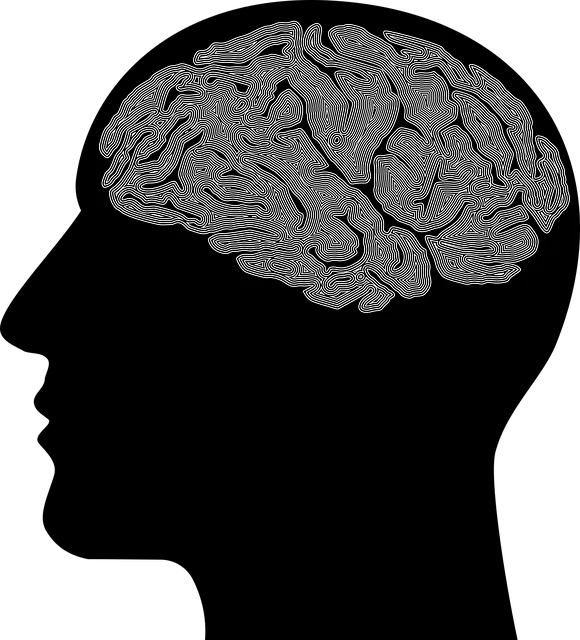Denver Kaiser Permanente faces challenges in diagnosing mental illness due to complex presentations, comorbidities, and varied symptoms. To improve accuracy, they emphasize a holistic approach integrating compassion cultivation, individual life histories, cultural backgrounds, and social determinants of health. Key strategies include enhancing communication skills and using tailored risk assessment tools. These measures aim to provide more effective care, reduce misdiagnosis rates (up to 30% initially), and ultimately improve patient outcomes in Denver Kaiser Permanente's mental health services through evidence-based practices and policy advocacy.
Mental illness diagnosis accuracy is a critical aspect of healthcare, yet challenges persist at institutions like Denver Kaiser Permanente. This article explores current complexities and gaps in diagnostic practices, highlighting data on misdiagnosis rates and their impact on patient care. We delve into evidence-based strategies and tools designed to improve accuracy, including training initiatives for healthcare professionals and technology integration. Additionally, we discuss the significance of community engagement and support systems in fostering better mental health outcomes at Denver Kaiser Permanente.
- Current Challenges in Mental Illness Diagnosis at Denver Kaiser Permanente
- – Discussing the complexities and gaps in current diagnostic practices
- – Data on misdiagnosis rates and impact on patient care
Current Challenges in Mental Illness Diagnosis at Denver Kaiser Permanente

The current landscape of mental illness diagnosis at Denver Kaiser Permanente presents several challenges that demand attention and innovative solutions. Despite advancements in understanding mental health, accurate diagnoses remain a hurdle due to complex presentations, comorbidities, and individual variations in symptoms. The vast spectrum of disorders, including depression prevention and management, adds complexity as patients often present with overlapping symptoms, making differential diagnosis crucial.
At Denver Kaiser Permanente, improving diagnosis accuracy involves integrating compassion cultivation practices into the clinical setting. Mental health professionals are encouraged to adopt a holistic approach that considers not just symptoms but also patients’ unique life histories, cultural backgrounds, and social determinants of health. Enhancing communication skills and incorporating risk assessment tools specifically tailored for mental health professionals can significantly contribute to more precise diagnoses. By addressing these challenges head-on, Denver Kaiser Permanente aims to provide more effective care, ultimately improving patient outcomes in the treatment of mental illness.
– Discussing the complexities and gaps in current diagnostic practices

The current diagnostic practices for mental health conditions within organizations like Denver Kaiser Permanente face significant complexities. One major challenge is the vast spectrum and overlap of symptoms across various disorders, making accurate differentiation a daunting task. Additionally, the subjective nature of self-reported experiences and the need for comprehensive assessment tools contribute to potential gaps in diagnosis. These factors often lead to misdiagnosis or delayed treatment, impacting patient care and outcomes.
Mental illness stigma reduction efforts play a crucial role in addressing these issues. By fostering open conversations about mental health and promoting emotional well-being through educational initiatives, Denver Kaiser Permanente can enhance the accuracy of diagnoses. Implementing evidence-based Stress Reduction Methods and Emotional Well-being Promotion Techniques not only support improved diagnosis but also contribute to overall community mental health.
– Data on misdiagnosis rates and impact on patient care

Misdiagnosis rates in mental health have long been a concern within the healthcare industry, particularly at institutions like Denver Kaiser Permanente, which serves a diverse patient population. Studies show that up to 30% of patients initially diagnosed with one mental health disorder may later be found to have another, often more severe or co-occurring condition. This discrepancy has significant implications for patient care and outcomes. Misdiagnosis can lead to ineffective treatment plans, delayed access to appropriate care, and potential harm to the patient’s overall well-being.
At Denver Kaiser Permanente, efforts to improve diagnosis accuracy are grounded in initiatives such as the Mind Over Matter Principles, which emphasize evidence-based practices and a holistic approach to mental healthcare. Additionally, enhancing cultural sensitivity in mental healthcare practice has been a key focus, ensuring that diagnostic processes are inclusive and consider the unique experiences of diverse patient populations. These strategies, combined with ongoing Mental Health Policy Analysis and Advocacy, aim to reduce misdiagnosis rates and improve overall mental health service delivery.
The current challenges in mental illness diagnosis at Denver Kaiser Permanente highlight the urgent need for improved accuracy. By addressing the complexities and gaps in current practices, such as enhancing training programs and adopting evidence-based tools, the organization can reduce misdiagnosis rates and significantly impact patient care. Focusing on these efforts will not only benefit individual patients but also contribute to a more effective and compassionate mental health care system at Denver Kaiser Permanente and beyond.






